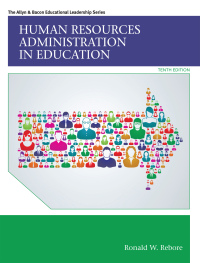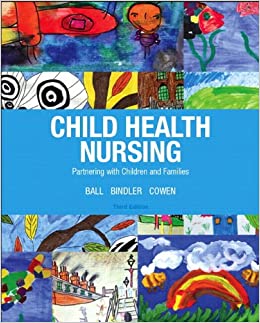Human Resources Administration in Education 10th Edition Ronald W. Rebore
Original price was: $50.00.$39.97Current price is: $39.97.
Format: Downloadable ZIP File
Resource Type: Test bank
Duration: Unlimited downloads
Delivery: Instant Download
When it comes to managing resources effectively in educational institutions, the book “Human Resources Administration in Education 10th Edition” by Ronald W. Rebore is a valuable resource. This edition delves into the complexities of human resources administration within the education sector, providing insights into organizational dimensions, human resources planning, recruitment, selection, placement, induction, and more.
**ISBN:** 9780133583380, 0133583384
### Key Topics Covered in the Book:
1. Organizational Dimensions
2. Human Resources Planning
3. Recruitment Strategies
4. Selection Process
5. Placement and Induction
6. Ethics Issues in Human Resources Management
7. Implications for Small- and Medium-Sized School Districts
8. Impact of Technology on Human Resources Administration in Education
The book offers a comprehensive overview of the crucial role that effective human resources management plays in the success of educational institutions. From addressing recruitment challenges to implementing induction programs for new teachers and administrators, this edition provides practical insights and strategies for optimizing human resources in an educational setting.
Educators, administrators, and students studying human resources management will find this book to be a valuable resource for understanding the complexities and best practices in managing human resources within educational institutions.
### FAQ
**Q: Is this book suitable for educators and administrators in the education sector?**
A: Yes, this book is specifically designed for educators, administrators, and students who are interested in human resources administration within the education sector.
**Q: Does the book cover ethical issues in human resources management?**
A: Yes, the book addresses ethical issues such as social media usage, employee privacy, and discrimination in the workplace.
**Q: Are there practical strategies provided in the book for improving human resources management in schools?**
A: Yes, the book offers practical insights and strategies for recruitment, selection, placement, and induction processes in educational institutions.
**Q: Is there a focus on the impact of technology on human resources management in education?**
A: Yes, the book explores the implications of technology, including online recruitment, training programs, and the role of technology in enhancing human resources processes.
### Conclusion
“Human Resources Administration in Education 10th Edition” by Ronald W. Rebore is a valuable resource for anyone involved in human resources management within educational institutions. With its comprehensive coverage of key topics and practical insights, this book serves as a guide for optimizing human resources practices to enhance the effectiveness of educational organizations. Whether you are an educator, administrator, or student, this book offers a wealth of knowledge and strategies to navigate the complexities of human resources administration in the education sector.In the field of education administration, it is crucial for school districts to focus on the development and improvement of their staff through various programs and evaluations. This not only enhances the overall quality of education but also ensures the growth and success of the educators within the system. Let’s delve deeper into the key aspects of the newly assigned Lecturers and performance evaluation in the context of human resources management in schools.
**Chapter 6: Workers Improvement**
In this chapter, the focus is on creating a structured staff improvement program that aligns with the goals and objectives of the school district. It covers the dimensions of the learning process, needs assessment, program design, implementation, and evaluation. Additionally, it explores different types of staff development programs tailored for various categories of employees, including teachers, principals, and classified staff.
**Chapter 7: Performance Evaluation**
Performance evaluation is a critical component of human resources management in schools. This chapter introduces the concept of value-added performance evaluation and explores the development of evaluation processes and instruments. It also delves into the discipline procedures, termination of employees, grounds for termination, and the implications for small to medium-sized school districts.
**Chapter 8: Compensation**
Compensation plays a significant role in attracting and retaining talented educators. This chapter discusses variables affecting compensation such as performance, seniority, job requirements, and different types of compensation. It also covers indirect compensation through fringe benefits administration, including mandatory and voluntary benefits, healthcare considerations, and implications for school districts of varying sizes.
**Chapter 9: Collective Negotiations**
Collective negotiations are an essential aspect of human resources management in the education sector. This chapter provides insights into historical perspectives, bargaining strategies, deadlock procedures, mediation, arbitration, and the management of master agreements. It also emphasizes collaborative negotiation approaches and evidence-based support for collective negotiations.
**Chapter 10: Legal, Ethical, and Policy Issues**
Legal, ethical, and policy considerations are paramount in human resources management. This chapter addresses contract management, litigation in HR administration, ethical responsibilities of HR directors, policy development, and the impact of technology on legal and ethical issues. It offers guidance on managing crisis events, errors and omissions liability insurance, and developing human resources policies.
**Conclusion**
Effective human resources management is a cornerstone of successful education administration. By focusing on staff development, performance evaluation, compensation, collective negotiations, and legal/ethical issues, school districts can create a conducive environment for growth and excellence. Implementing best practices in these areas will not only benefit educators but also ensure the overall success of the educational institution.
**FAQs**
1. What is the significance of staff development programs in schools?
Staff development programs enhance the skills and knowledge of educators, ultimately improving the quality of education provided to students.
2. How does performance evaluation contribute to human resources management in education?
Performance evaluation helps identify strengths and areas of improvement for educators, leading to targeted professional development and growth opportunities.
3. Why are compensation and fringe benefits important in attracting and retaining talented educators?
Competitive compensation packages and fringe benefits are crucial for attracting and retaining skilled educators, ensuring stability and quality in education delivery.
4. What role do collective negotiations play in human resources management in schools?
Collective negotiations facilitate fair labor practices and the establishment of agreements that benefit both educators and the school district.
5. How can schools navigate legal, ethical, and policy issues in human resources management?
By developing sound HR policies, staying abreast of legal requirements, and upholding ethical standards, schools can effectively address legal, ethical, and policy challenges in HR management.
User Reviews
Be the first to review “Human Resources Administration in Education 10th Edition Ronald W. Rebore”

Original price was: $50.00.$39.97Current price is: $39.97.






There are no reviews yet.